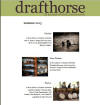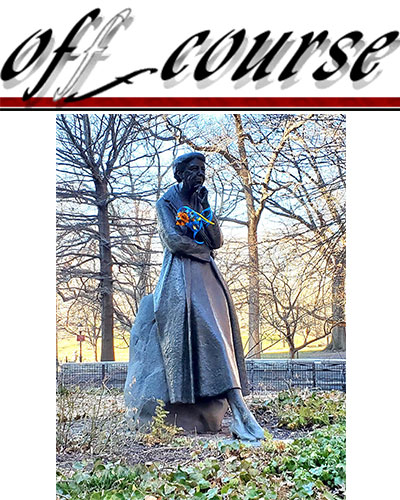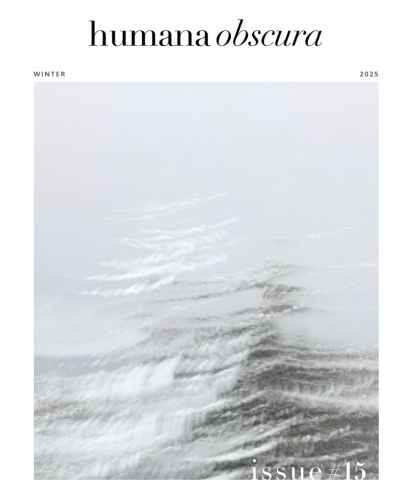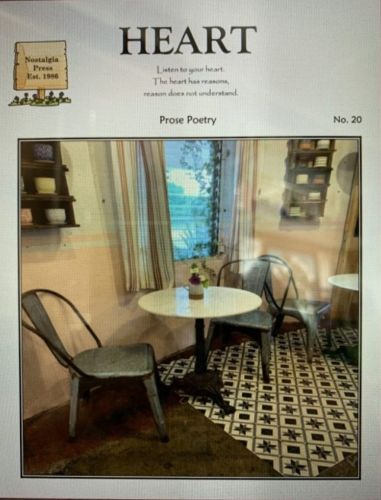drafthorse focuses on “fiction, creative nonfiction, poetry, visual narrative, and other media art where work, occupation, labor—or lack of the same—is in some way intrinsic to a narrative’s potential for epiphany.” This Summer 2013 issue speaks to that, loud and clear.
drafthorse focuses on “fiction, creative nonfiction, poetry, visual narrative, and other media art where work, occupation, labor—or lack of the same—is in some way intrinsic to a narrative’s potential for epiphany.” This Summer 2013 issue speaks to that, loud and clear.
Shelby Wardlaw writes a piece in the form of a folk tale, “The Waitress and the Cabinetmaker.” After much resistance, the cabinetmaker finally decides to teach the waitress to make cabinets. She ends up pouring herself into the artwork, quite literally—first hair then fingers, toes—until there is nothing left. She works herself so hard and doesn’t find true peace from it, even though each cabinet she made would bring her solace for a short time.
Julia Nunnally Duncan, in 1979, doesn’t have her dream job of teaching yet; instead, she is a shoe salesgirl—for a month. Her nonfiction piece, “Salesgirl,” is an interesting glimpse of a shoe store from the retail perspective: “I didn’t have to work in the store long to discover that some men assumed that the saleswomen were available for more than just assisting with shoes. To them, ‘The customer is always right’ meant they had the right to anything they wanted, including the women working in the store.”
Ron A. Austin’s “Snakes, Thieves, and Liars” has an emphasis not on labor but rather on the lack thereof. The narrator recalls when her father would spend away all of the family’s money gambling. She insists on going with him one day, but he tries to talk her out of it:
I can’t tell you what kind of hold that place has over you. I can’t tell you what it is, but I can tell you what it feels like. Smoke and whispers soak up hours, them free drinks make your brain nothing but a wet sponge, your tongue sticks to the roof of your mouth like salt-water-taffy, and you bet and bet until your pockets are bone dry, then you bet some more—and for what? For what, I don’t know, but ain’t that ugly?
The poetry, too, is grounded in labor and work. See Harmony Button’s “Hardware Crush” and “Heartware Store.” The second of these is broken into stanzas, each stanza a different aisle of the store. It combines the hardware store with matters of the heart:
Aisle 3: Forgiveness & Resiliencies
sold separately. The man in the orange apron
reminds me that my system should be calibrated
to handle alternating circuit, otherwise
I’m sure to break down, probably somewhere
inconvenient. Do you have Triple A for heartache?
It’s clever, entertaining, and well thought-out. And the end at first seems gushy, but is actually a heart-breaker.
There’s plenty to digest in this issue, and plenty to think about. Some words will stick in your mouth, and the stories resonate, reminding us what hard work entails.
[www.lmunet.edu/drafthorse/main.shtml]






